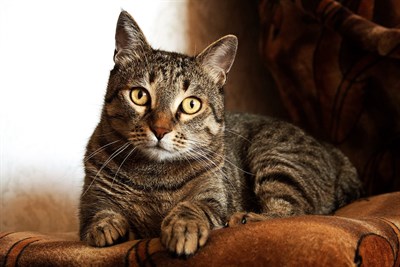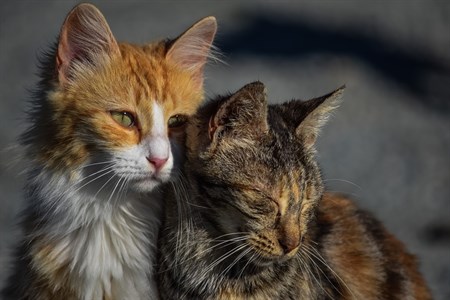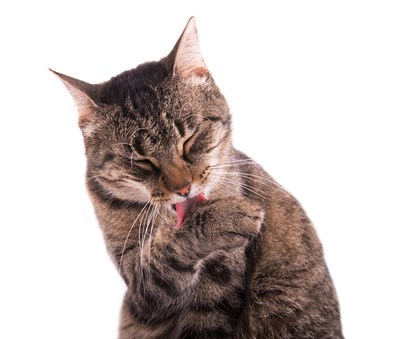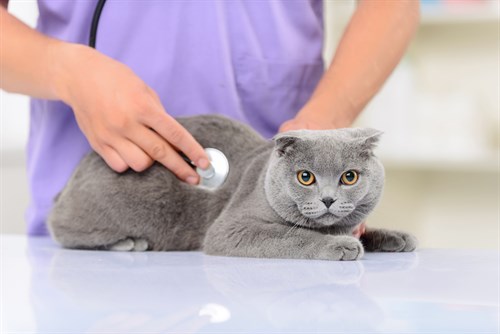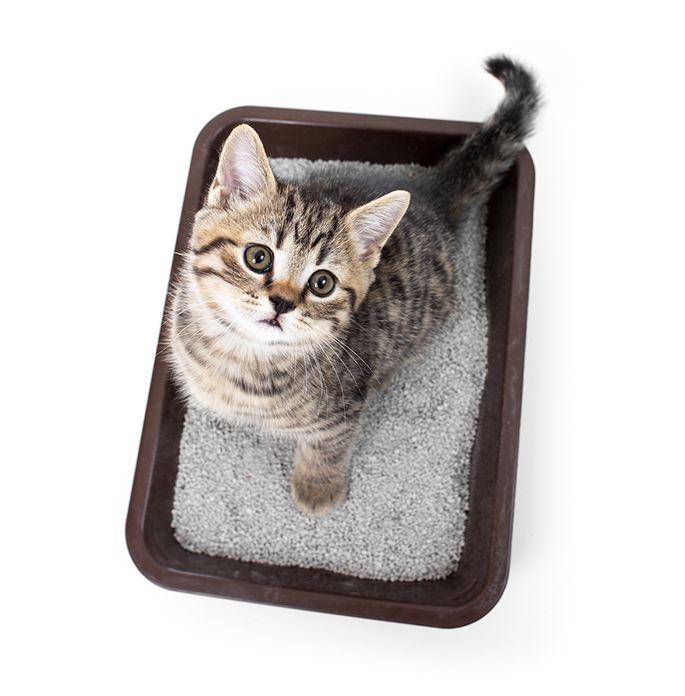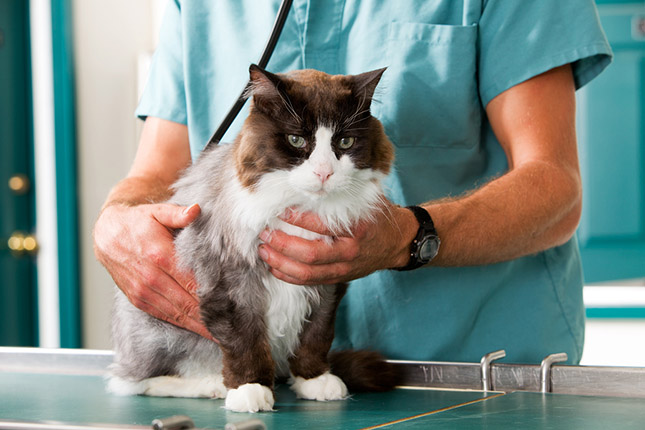Feline inappropriate elimination–thinking outside the litter box
Inappropriate elimination, or urinating outside of the litter box, is one of the most common problems noted by indoor cat owners. Currently, it is a dominant reason for owners to surrender their cats at a shelter. While it is a frustrating issue, inappropriate urination can stem from a number of underlying causes, including behavioral or […]
Heartworms in cats
Heartworms, which are spread by mosquitos, can cause serious health complications in pets. Although heartworms are more commonly diagnosed in dogs, cats are also at risk for this disease. Megan Arroyo, a veterinary student at the Texas A&M College of Veterinary Medicine & Biomedical Sciences, explained how heartworms can harm our feline friends. “The adult […]
Kittens born to feral cats can still be “purr”-fect pets
Feral cats may look cute and cuddly, but they are a lot different than a typical house cat. While feral cats are considered wild animals and prefer to live their lives outdoors, their kittens can be rescued from the streets and put into loving homes as pets. Feral cats have never been socialized to humans. […]
Cats are carnivores, so they should eat like one
Diet can have a big impact on health. Just like humans, cats have special dietary needs to help them stay healthy. However, feline diets are a lot different than human diets. Cats are obligate carnivores, meaning they require meat in their diet and need little carbohydrates. In the wild, cats usually prey on small animals, […]
When is your cat hiding illness or injury?
We do our best to take care of our feline friends, but sometimes signs of pain and sickness go unnoticed. Dr. Stacy Eckman, clinical assistant professor at the Texas A&M College of Veterinary Medicine & Biomedical Sciences, described feline behavior that could mean a cat is hiding an illness, injury, or other underlying health issue. […]
Feline Upper Respiratory Infections
If your cat has irritated eyes, nasal discharge, and is sneezing and feeling lethargic, they may have an upper respiratory infection (URI). Feline URIs are commonly caused by certain viruses and spread by exposure to infected cats and their secretions. Though the viruses that cause feline URIs are present within cat populations, Dr. Christine Rutter, […]
Gastrointestinal Disorders in Cats
Frequent diarrhea, vomiting, and other signs of an upset stomach in your cat could be signs of gastrointestinal (GI) or digestive disorders. While an occasional upset stomach is normal, cat owners should inform their veterinarian if their pet frequently experiences signs of digestive issues. “Gastrointestinal disorders are diseases that affect the digestive tract,” said Dr. […]
Common Feline Parasites
Whether your cat stays indoors or outdoors, all cats are at risk for internal and external parasites. Recognizing the signs of parasites and knowing their life cycles could help maintain your cat’s health. Dr. Sina Marsilio, internist and researcher at the Texas A&M College of Veterinary Medicine’s Gastrointestinal Laboratory, explained the most common feline parasites, […]
Feline Lower Urinary Tract Disease
Recognizing irregular behavior is one of the most common methods pet owners use to determine if their cat may be sick or in pain. One behavior that should be closely regulated is urinary behavior. Keeping track of urination habits helps prevent conditions such as feline lower urinary tract disease (FLUTD), an umbrella term that refers […]
Breast Cancer in Cats
Breast cancer is unfortunately prevalent not only among humans, but also in our feline friends. Just like with people, mammary cancer is very aggressive in cats, and they have the best chance of survival if caught early. “Eighty-five percent of mammary tumors found in cats are malignant, and more that 80 percent will eventually spread […]

